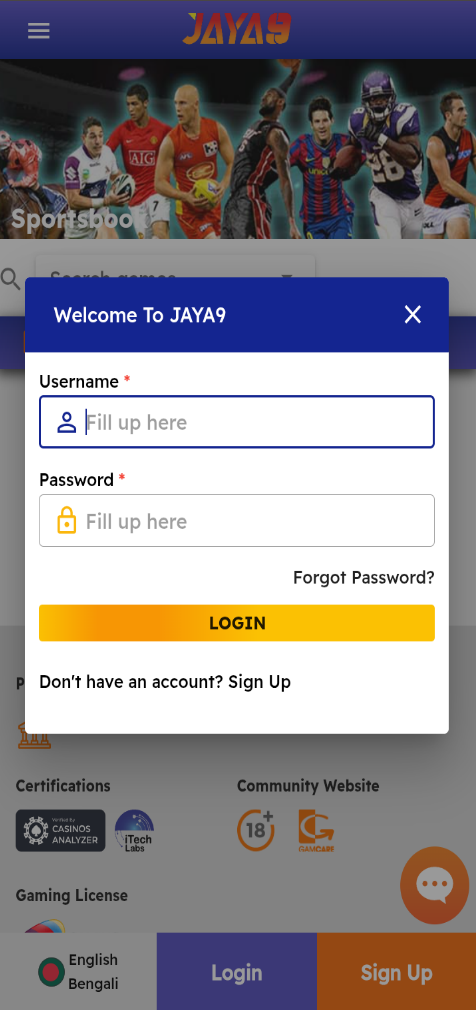
International Regulations Affecting Bangladesh Players
In the ever-evolving landscape of global sports, athletes from Bangladesh are increasingly finding themselves at the intersection of international regulations and local realities. This intersection profoundly impacts their careers, rights, and opportunities. In this article, we delve into the various international regulations that affect Bangladesh players, shedding light on the challenges they face and the frameworks they must navigate. For more information, you can visit International Regulations Affecting Bangladesh Players joya9.
The Role of International Federations
International federations of various sports play a crucial role in setting standards, rules, and regulations that member countries, including Bangladesh, must adhere to. For instance, organizations like FIFA for football, the International Cricket Council (ICC) for cricket, and FIBA for basketball establish guidelines that determine how sports should be played and managed globally. These regulations often cover a range of areas, from player transfers and eligibility to anti-doping laws and player conduct.
Player Contracts and Transfer Regulations
One significant area of international regulations affecting players is contract law, particularly in the realm of transfers. The FIFA Transfer Regulations govern how players can move between clubs, impacting players in Bangladesh who aim to play in international leagues. Understanding these regulations is crucial for Bangladeshi players seeking opportunities abroad. They must navigate rules regarding transfer fees, contract periods, and conditions under which they can be released or transferred to another club. The complexity of these regulations can often lean towards protecting wealthier clubs at the expense of players, creating challenges for those from developing countries.

Anti-Doping Regulations
Another critical realm of international sports regulation is anti-doping. The World Anti-Doping Agency (WADA) establishes the framework for testing and sanctions related to doping violations. Bangladeshi athletes must be aware of these regulations to ensure compliance and protect their eligibility to compete. Failure to adhere to anti-doping rules can result in severe penalties, including suspensions and bans from competitions. The education and resources available to athletes in Bangladesh regarding these regulations can vary, thus emphasizing the need for targeted support and information dissemination.
Player Rights and Representation
The rights of players, particularly as outlined in the Collective Bargaining Agreements (CBAs) in various sports, are another vital consideration. These agreements can dictate terms regarding salary, working conditions, and players’ rights in negotiations. In many cases, Bangladeshi players may not have representation that fully understands the implications of these agreements on a global scale. It raises an important issue regarding the need for local sports agencies to become more involved in educating players about their rights and advocating for their best interests.
Gender Equality in Sports
Gender equality is a significant focus of international regulations, particularly in light of the ongoing efforts to promote women’s sports globally. The International Olympic Committee (IOC) and various sports federations emphasize gender equity, leading to increased opportunities for female athletes. In Bangladesh, the representation of female athletes remains disproportionately low compared to their male counterparts. Understanding international regulations that advocate for gender equality can empower female athletes in Bangladesh to pursue sports careers more vigorously and with greater support.
Labor Laws and Player Welfare

International labor laws also impact sports players, particularly regarding their welfare and working conditions. The International Labour Organization (ILO) sets standards that protect workers’ rights, including those of athletes. In a country like Bangladesh, where sports can be both a passion and a profession, the application of these labor laws becomes crucial. Many athletes may work under conditions that do not meet international legal standards, underscoring the need for advocacy and reform. Awareness of these labor rights can help athletes demand better conditions and treatment.
The Challenge of Compliance
Compliance with international regulations poses challenges as well. For Bangladeshi players and their representatives, adhering to these regulations while navigating local realities often proves difficult. The implementation of policies and regulations requires cooperation from various stakeholders, including government bodies, sporting federations, and international organizations. Collaboration among these entities is essential to ensure that players are supported adequately, educated about their rights, and informed of the frameworks that govern their careers.
The Future of Bangladeshi Players
Looking ahead, the landscape of international regulations affecting Bangladeshi players is likely to evolve continuously. As sports become more globalized, players will need to stay informed about changes in regulations that may impact their careers. The development of local sports infrastructure, increased investment in athlete education, and active engagement with international bodies will be vital in ensuring that Bangladeshi players can thrive in an increasingly competitive environment. Moreover, fostering a culture of awareness, advocacy, and compliance can empower players to take proactive steps in their careers.
Conclusion
In conclusion, international regulations play a pivotal role in shaping the careers of Bangladeshi players. With an understanding of these regulations, athletes can navigate their careers more effectively, advocate for their rights, and strive for better opportunities both locally and internationally. As globalization in sports continues to increase, it is essential for all stakeholders, including players, sports organizations, and policymakers, to work collaboratively toward a more equitable and supportive sports environment for all.

